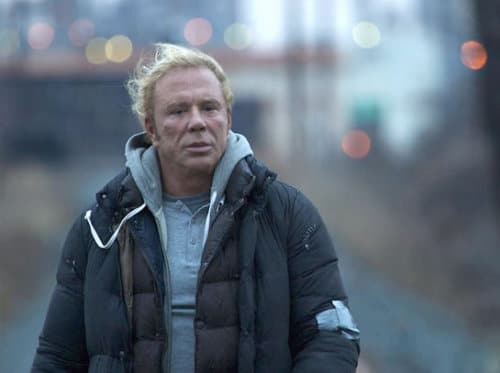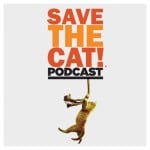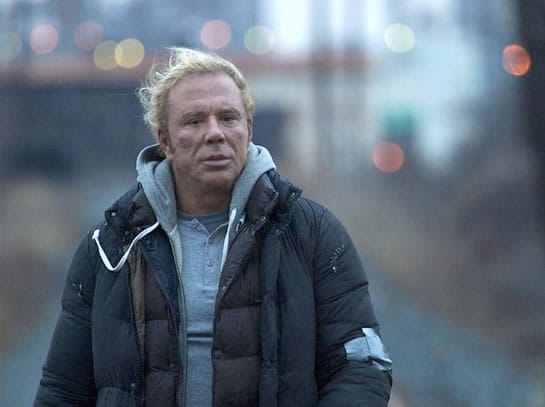
 Are there stories where your hero does not really change — and if so, does that take away from the audience’s experience? Master Cat José Silerio and Guy Thompson consider Fury, The Wrestler, and WALL-E in this conversation about types of changes, where the protagonist might not turn from sinner to saint, but may still learn something from his or her journey. How is your hero affecting the world around him? How is he affecting you? And how is change tied into your theme? Listen up!
Are there stories where your hero does not really change — and if so, does that take away from the audience’s experience? Master Cat José Silerio and Guy Thompson consider Fury, The Wrestler, and WALL-E in this conversation about types of changes, where the protagonist might not turn from sinner to saint, but may still learn something from his or her journey. How is your hero affecting the world around him? How is he affecting you? And how is change tied into your theme? Listen up!
Podcast: Play in new window | Download
Subscribe: Apple Podcasts | RSS
Jose Silerio
José Silerio, a screenwriter who served as Blake Snyder’s Development Director, has been integral to the success of Blake’s workshops and classes as he worked alongside Blake schooling writers in the Cat! method. “José is my right-hand man when it comes to script consultations.”– Blake Snyder, Save the Cat!® Strikes Back – More Trouble for Writers to Get Into… and Out Of.
2 Comments
Leave a Reply Cancel reply
You must be logged in to post a comment.










Nice podcast, you guys. A couple thoughts about The Transformation Machine. First, since most protagonists are first depicted living in a status quo that is somehow problematic in ways that are not immediately apparent (or willfully ignored) by the Hero, the structure itself implies that attempting to change this situation is a good thing, so change=good/positive. We’re rooting for the Hero to change his life and circumstances, or at least try to. So if he tries and succeeds then transformation has occurred and the audience feels good about it. I would say that’s what happens in most mainstream movie stories. But even if the Hero tries and fails, and vows to keep on trying, well, that’s a positive transformation, too, because even though it ends in a kind of external failure, the internal change is positive. But if the Hero tries, fails, and then ultimately sours on the whole idea of change — willfully refuses positive change — then this is a negative outcome. Change is rejected. This is a tragic if the audience believes that change was a good thing, even if the Hero himself reframes this rejection as a positive for himself. I think that’s what happens in THE WRESTLER. The audience wants him to change, believes it tragic that he refuses to change (he goes on fighting which will probably lead to his death of a heart attack a few minutes later), even though his rejection of change is in a certain way admirable — he’s going to live and die on his own terms, dammit! So it’s ironic, and expresses powerfully conflicting emotions, though more sad than anything else. With WALL-E, there is a Hero who doesn’t really change, he’s just steadfastly himself, and he has a powerful and positive effect on the world around him. John Truby coined a very useful term when it comes to this kind of protagonist: a “Traveling Angel.” The TA doesn’t change (because usually they’re “perfect” in some way) but facilitates positive change in others. In the case of Wall-E, he changes almost everything and everybody — the humans, as you mentioned, so the continuation of the human race on Earth (can’t get much bigger than that), but also Eve, a more advanced robot who is perhaps more capable of change than he is (advanced programming?). He warms her heart, so to speak, and this is wonderful and beautiful. Truby talks about how the Traveling Angel usually helps another “learn how to live with style,” and this is exactly what Wall-E teaches Eve with his loyal, dogged pursuit, their dance among the stars and his overall well-meaningness. It’s interesting to note that his devotion to Hello, Dolly! is worship of one Traveling Angel to another, because Dolly, of course, doesn’t change but encourages people to open up their hearts and learn to live with style. It’s hard for me to comment on FURY because I haven’t seen it, but I did read Ben’s breakdown and what appears to happen is a good man is mentored to be a bad man in a circumstance that demands it (war), but refuses to let go of his humanity. This seems to be a situation where internal change is meant to be perceived by the audience as negative, and so watching the Hero embrace change would be tragic. The Hero apparently resists the temptation to change and good things come of it — his life is spared. This strikes me as a very rare storytelling strategy where the audience is encouraged to hope against change, against transformation, and it leads to a positive outcome — though perhaps he will bring this boon, this lesson back to the world like the Archetypal Hero referenced by Joseph Campbell. In this case, a later transformation is implied. The Hero will change the world later, by living a good life and sharing his lessons learned (war is bad). Like most of the terms Blake came up with, “The Transformation Machine” is an extremely powerful tool. I see Blake’s terms more as “prompts” than “rules,” and as prompts they are incredibly useful and inspirational. People who treat them as rules are kind of missing the point of the creative process, which is far more flexible, forgiving and intuitive than any rule book allows. Sorry to talk your ear off.
So I have found one podcast from March and one from April. How do I find the rest?